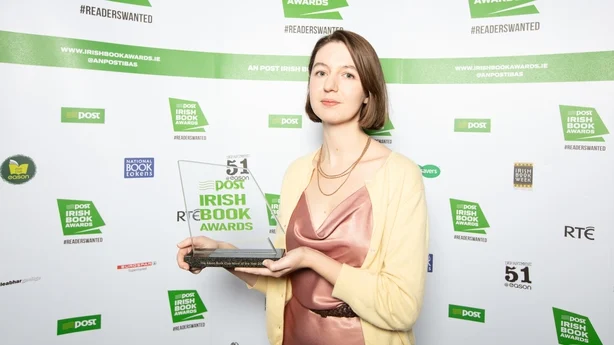Whatever else may be true about Sally Rooney, the fact of her success throughout her career has been a thorn in the side for all the wrong people.
Here's Lauren Oyler in Bookforum, opining that "the unwavering neatness of her books leads to pat lessons and characters totally lacking in mystery". Here’s John Maier in controversialist stalwart UnHerd bemoaning that Rooney’s "novels have helped to popularise a flat, affectless, prose".
Notwithstanding the aforementioned writers trading in snark over meaningful criticism, Rooney-bashing has become its own quasi-industry; as reliable a prospect for the Brooklynite misanthrope as sourdough starters or shares in a microbrewery.
It’s important to remember that when Sally Rooney burst onto the scene with Conversations with Friends in 2017, she wasn’t courting any kind of hype. Like most great novelists beginning their career, her approach tended towards magnanimity, self-effacement and sureness in her own project; a useful mix for anyone negotiating the tricky world of publishing and a far cry indeed from the posturing of her critics.

On the eve of the publication of her third novel, Beautiful World Where Are You? - having already been through the ringer of global success that came in the wake of Normal People - Rooney told The Guardian that she actually worried about the trappings of her newly-found fame: "As far as I can make out, the way that celebrity works in our present cultural moment is that particular people enter very rapidly, with little or no preparation, into public life, becoming objects of widespread public discourse, debate and critique."
She continued: "If you don’t want to read novels about writers, or women, or Irish people, don’t read my novels. I won’t mind."

Before the publication of either Conversations with Friends or Normal People, no one could have predicted the seismic impact Rooney would have on the books world, much less that the novels themselves would end up being dissected to the point of meaninglessness. The publishing industry scrambled quickly to reshape itself around Rooney’s success, acquiring authors it thought might fit the same mould - occasionally even styling their book covers after Rooney’s, or giving their products titles which were similar to hers—but these efforts mostly missed the point; almost as much as Rooney’s detractors did.
So where does one go when the weight of public expectation threatens to cannibalise the very thing that makes your work special?
While the rest of the world cottoned onto the books' Millennial disaffection, Irish readers understood that they were exploring something more specific. Not just pat commentaries on late capitalism or friend and relationship dynamics, but the difficulty of coming of age in an Ireland post-Celtic Tiger, ravished by bankers, property speculators and political corruption, as well as by generational and class dynamics not easily replicated in other jurisdictions.
We need your consent to load this Spotify contentWe use Spotify to manage extra content that can set cookies on your device and collect data about your activity. Please review their details and accept them to load the content.Manage Preferences
Listen: Sally Rooney reads Opening Theory for The New Yorker
It would be too simplistic, in other words, too reductive, to read Conversations with Friends, Normal People or Beautiful World through a singular lens. The historical context of latent Church power, the legacy of the Troubles and the changing role of women in Irish society was too often missed in discussions about whether Rooney’s writing was Marxist enough or feminist enough, and indeed rendered the expectation that Rooney’s characters spoke for anyone but themselves all the more ridiculous. More often than not they just seemed to be navigating the world with the same set of limited tools as the rest of us.
So where does one go when the weight of public expectation threatens to cannibalise the very thing that makes your work special? To reduce almost everything you do to GCSE SparkNotes or slogans for a tote bag? You write your most ambitious work to date. Perhaps something like Rooney’s upcoming fourth novel Intermezzo; an epic interpersonal family drama centred around two chess playing brothers, Peter and Ivan Koubek, which the author’s publisher Faber has remained tantalisingly tight-lipped about, only to say that it is "an exquisitely moving story about grief, love, and family."
'Even if it's rare, to have a few times in life and no more, still worth living for, he thinks. To have met her like this: beautiful, perfect. A life worth living, yes.’
— Faber Books (@FaberBooks) September 10, 2024
Just two weeks left until we publish Intermezzo by Sally Rooney.https://t.co/9OfYtGStZK pic.twitter.com/BMiy79TLq7
That said, there’s no question that upon publication later this month Intermezzo will invite endless public discourse, though I do hope that the intricacies and complexities of its astute character study will be recognised for what they are. Kundera-esque. Rooney’s great leap forward. The transition of its author from accidental wunderkind into something more lasting—Ireland’s new literary stateswoman, someone cut from the same cloth as Edna O’Brien or Anne Enright, or perhaps she may shock us and emerge as something else entirely. As with everything when it comes to Rooney, it’s still too early to tell. Let’s give her the benefit of reading one book at a time and allowing her the freedom to develop more naturally.
Intermezzo is published by Faber on September 24.
Disclaimer: The copyright of this article belongs to the original author. Reposting this article is solely for the purpose of information dissemination and does not constitute any investment advice. If there is any infringement, please contact us immediately. We will make corrections or deletions as necessary. Thank you.






